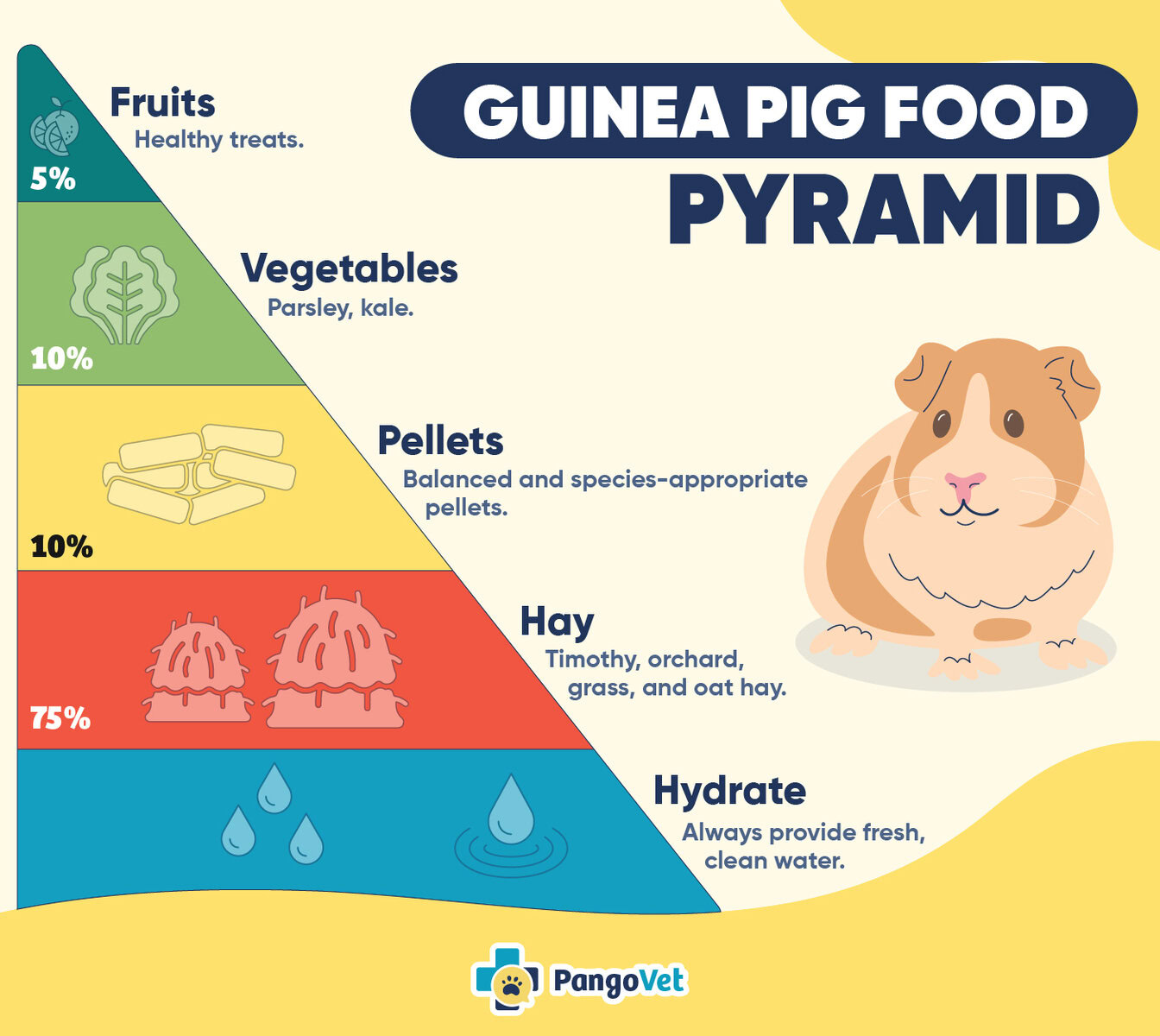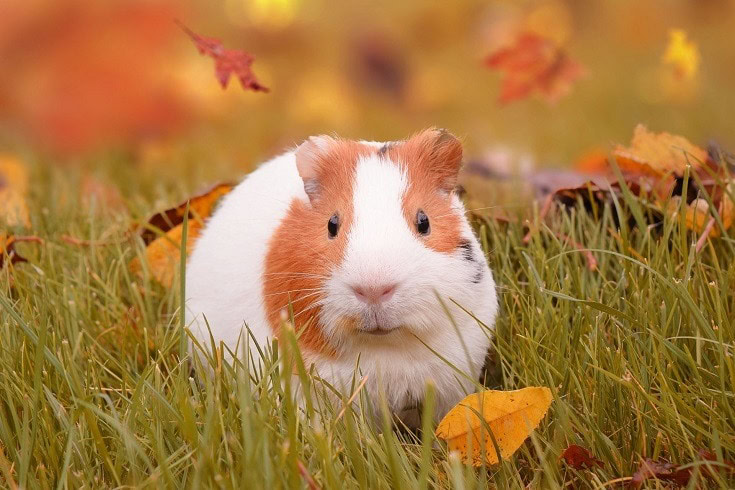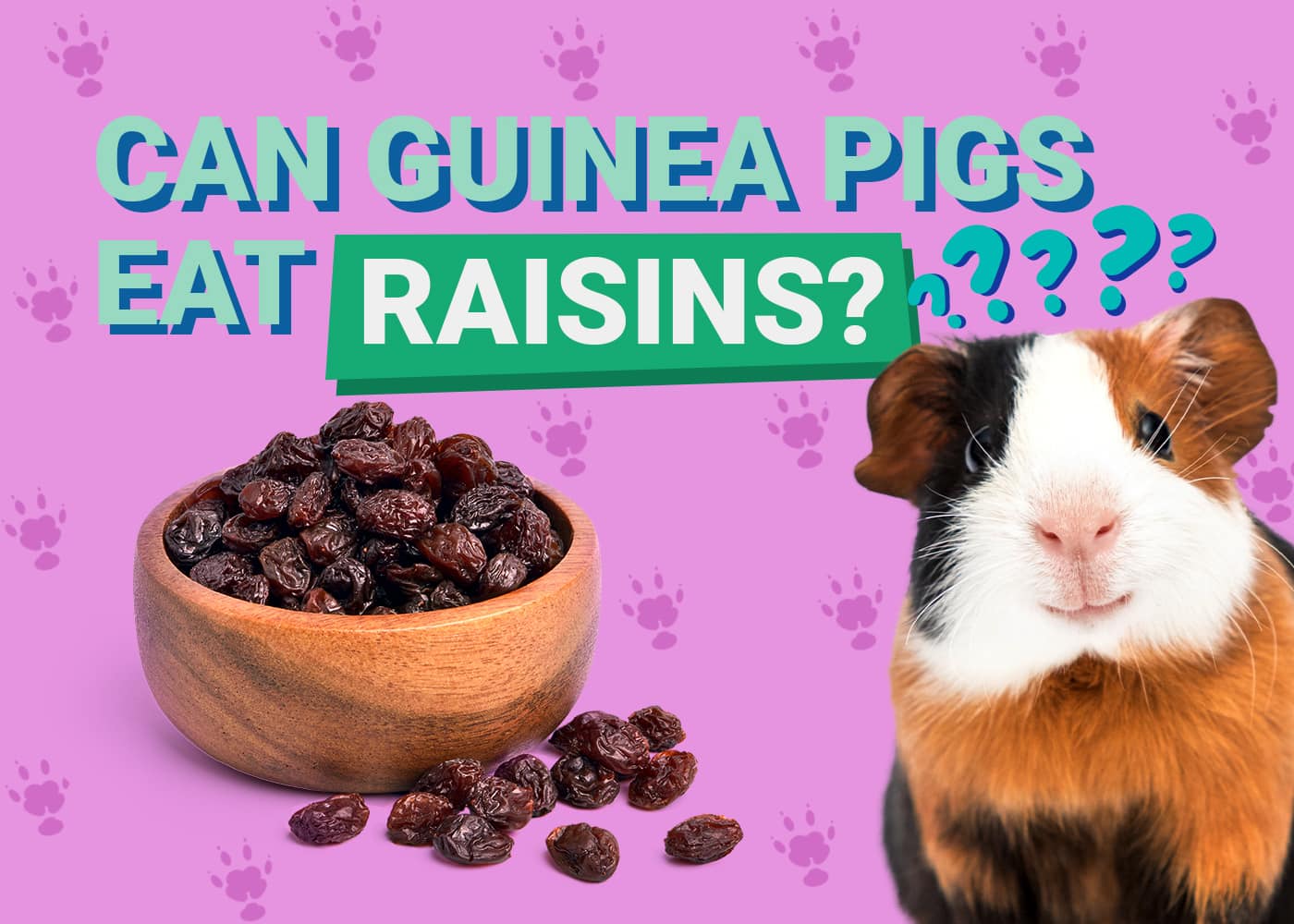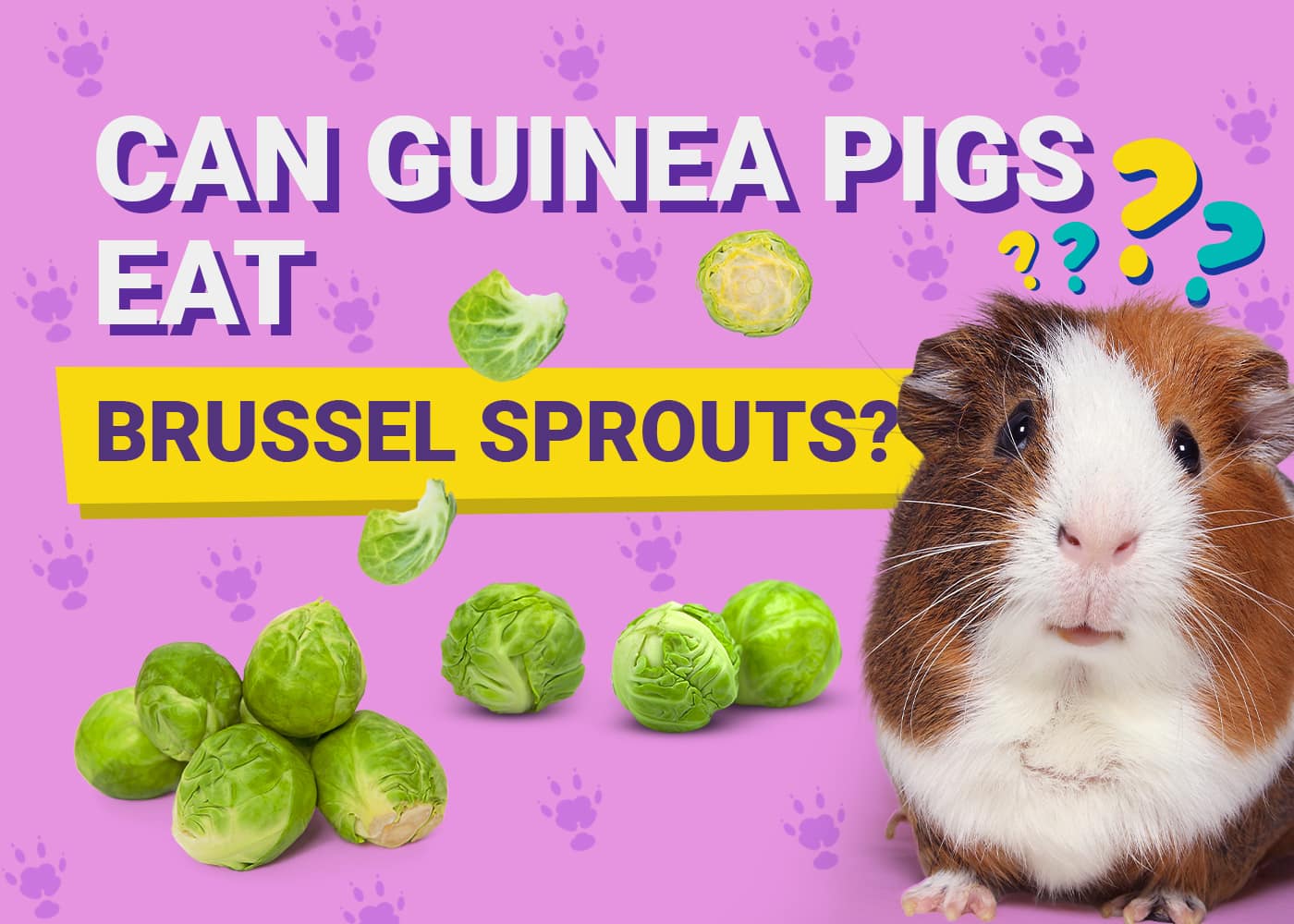VET APPROVED

The information is current and up-to-date in accordance with the latest veterinarian research.
Learn more »If you are wondering if your guinea pig can eat raisins, you’ve come to the right place! The short answer is yes, they can, but no, they shouldn’t. Chances are that your guinea will love raisins and for good reason. They are soft, chewy, and sweet, all the perfect characteristics of an ideal snack!
But like all food, just because raisins are delicious, that does not mean guinea pigs should eat them, and this is especially true if you are your pet’s sole provider of nutrition. Raisins are extremely high in sugar, which is not only not digested well by guinea pigs, but it is not good for their teeth either. This is not to say that the occasional raisin will be overly detrimental to your guinea’s health, but many other treats can provide the small amounts of benefits that raisins will, without the negative consequences.
Below, we’ll dig a little deeper into this popular sweet treat and find out exactly why your guinea pigs should not eat them.

The Natural Diet of Guinea Pigs

Guinea pigs in the wild live mostly on grass, leaves, and flowers and will only occasionally eat fruits and vegetables. Timothy hay is the most common food for both wild and pet guineas, and this fibrous grass should make up a large percentage of their regular diet. It contains the essential fiber and roughage that they need for healthy digestion. Guinea pigs’ teeth never stop growing, and they must have the required roughage to keep them trim.

Health Risks of Feeding Raisins to Guineas
While the odd raisin now and then may not be deadly to your guinea pig, there are several good reasons to avoid them altogether.
1. Sugar
While guineas can safely eat fresh grapes on occasion, raisins are much higher in sugar content. The drying process compounds the sugar in grapes, making them between 67% and 72% sugar by weight. This sugar can lead to rapid weight gain in your guinea, which can cascade into many other health problems, including glucose intolerance, insulin resistance, obesity, and fatty liver disease.
2. Digestion
Guineas have a highly sensitive digestive tract as it is, and they cannot easily digest the sugars in raisins. These excess sugars lead to gut bacterial imbalances that can cause diarrhea, stomach pain, loose stool, and painful cramps.
3. Dental Issues
Raisins are sweet, sticky, and chewy — a perfect recipe for dental issues. They can easily get stuck in your guinea pig’s teeth and quickly cause tooth decay and gum disease. This, combined with the high sugar content in raisins and the fact that your guinea will most likely not have a toothbrush handy, has a cascading effect on dental disease.

Do Raisins Have Any Health Benefits for Guinea Pigs?

Raisins are not a healthy snack for guinea pigs. The high sugar content poses significant risks to their digestive system, metabolism, and dental health, outweighing any potential benefits from the vitamins and antioxidants they contain. While vitamin C is essential for guinea pigs, and raisins contain a small amount, they are not a safe source. Better options for vitamin C include bell peppers, parsley, and small amounts of kale, which are better suited to their nutritional needs.
What If Your Guinea Eats Raisins?
Guinea pigs love raisins, which leads many owners to feed them freely to their guineas. Long term, this can have a cascading effect on their health. However, the occasional raisin will likely not cause much harm to your guinea. While we recommend not giving them raisins, or any other dried fruit at all for that matter, one or two raisins a month as a treat should be fine.

Conclusion
Raisins may not be deadly to your guinea pig in small amounts, but if eaten regularly, they can quickly cause serious health issues for your beloved pet. Digestive distress, weight gain, and tooth decay are just a few problems they may experience when given too much of this sweet treat. They also become at risk of developing metabolic issues.
So, while guinea pigs can eat raisins, they probably shouldn’t.
Also see:










